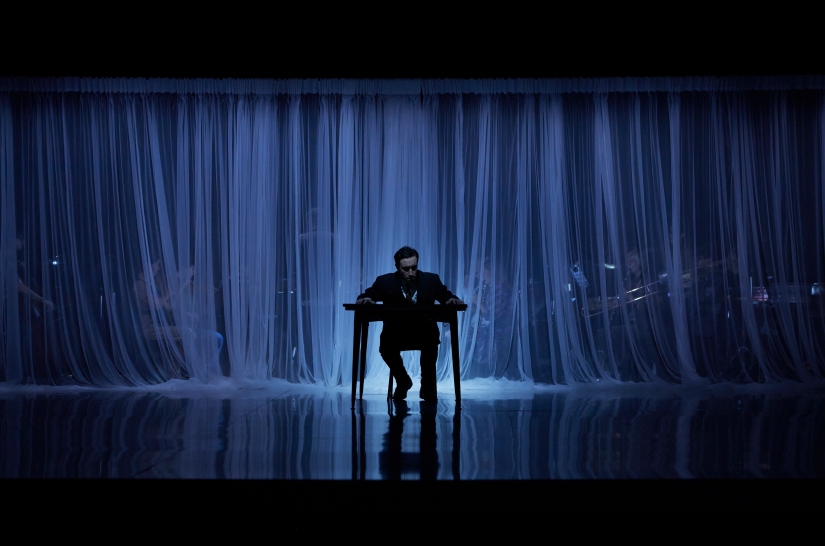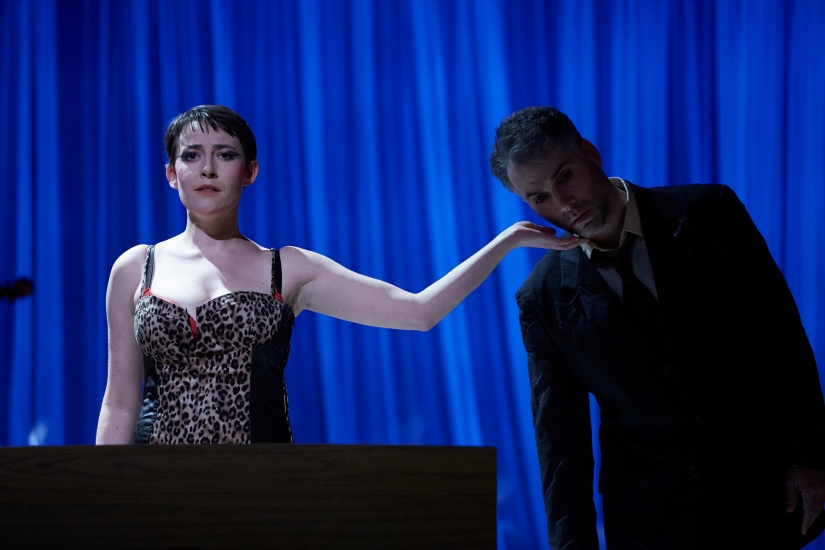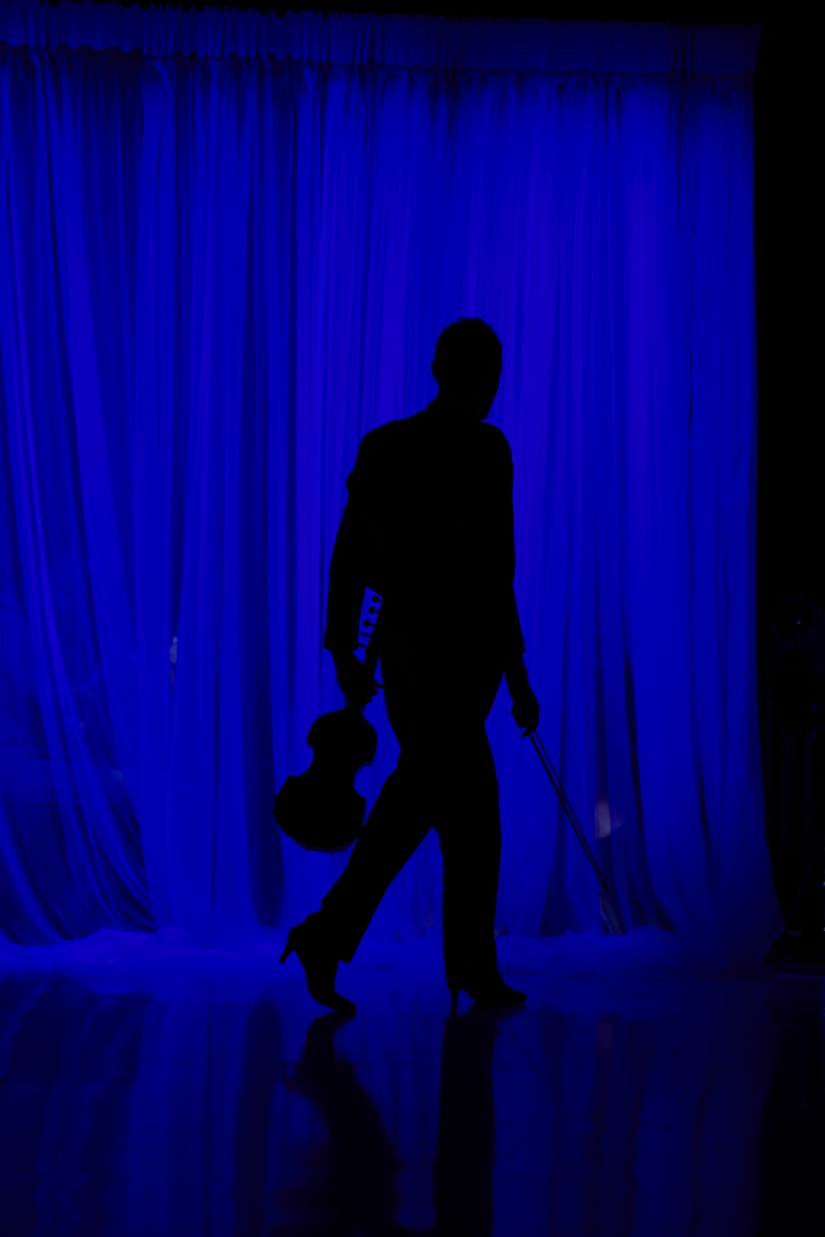NOTES FROM UNDERGROUND (2010, rev. 2015- 2016)
chamber opera after the novel by Dostoevsky (90 minutes)
Libretto by Pierce Wilcox

performances of revised version by Sydney Chamber Opera
13- 20 August 2016, Carriageworks, Sydney
performances of original version by Sydney Chamber Opera
17 -23 February 2011, Cellblock Theatre, Sydney
Broadcast on ABC Classic FM, available as a podcast in two instalments:
The Novel
Notes from Underground, written by Fyodor Dostoevsky early in his career in 1864, is presented as the handwritten notes of an unnamed man who has abandoned the world and fled to a symbolic Underground. In the first of two fragments, ‘Underground’, the Underground Man, age forty, presents his rambling, digressive and misanthropic account of the state of humanity. In the second fragment, ‘Apropos of the Wet Snow’, the Man records a memory from twenty years earlier that has been oppressing his mind.
In ‘Underground’, a tirade riddled with contradictions and dogged by self-loathing, the Man delivers a rage-filled critique of utopian idealism, morality and consciousness itself. The recollections of ‘Wet Snow’ satirise a different world of thought: the romantic idealism of literature. Fiction tells us that men can be heroes, the fallen can be redeemed, and love can conquer all. The Underground Man shows us the failure of these dreams.
The Adaptation
Anyone but the most daring Dada-ist would typically read Notes from Underground from start to finish. This adaptation was built to use the live stage to its fullest and present the novel’s two halves simultaneously. The Underground Man’s diatribe no longer tumbles ‘from empty into void’. Instead, it is anchored to the unfolding action of his Aboveground self. His existential manifesto becomes a bitter commentary.
The libretto’s structure identifies resonances across the novel’s two sections- moments where the paralysed reflections of Underground and frustrated energy of Aboveground can balance each other, illuminate or undermine each other’s beliefs. Having the two onstage together allows the work an equilibrium between talk and action; one alone is no story worth telling.
Liza is the novel’s only female presence, and her encounter with Aboveground is the centrepiece of the ‘Wet Snow’ story. She is a character born of another genre, the sentimental narrative of the rescued prostitute, and so she has only text not drawn from Dostoevsky. In Scene 4 she sings a poem by N.A. Nekrasov from 1845 which Dostoevsky quotes as the epigraph to ‘Apropos of the Wet Snow.’
The fact that the Man’s ideals have to be decimated and shown to be hollow is something the music very consciously renders ‘operatically’: through means both literal and metaphorical, the music annihilates its own language. In general, the musical and temporal separation of the ‘Aboveground’ and ‘Underground’ versions of the Man gradually closes throughout the piece, until a union of material and purpose is attempted in the final scene.
Though the seven scenes are distinct in their construction, there are a large number of unifying musical elements representing character, character development and ideas. The stylistic means to achieve this are wide-ranging: there are just as many passages of (idiosyncratic) tonality as there are of quartertonal harmony. ‘Symphonic’ development in opera is a contentious structural issue, but one which is perhaps necessitated by the iron-clad logic of the ‘Underground’ Man’s arguments- hence such musico-dramatic conceits as the strict Sonata form that shapes Scene Six. Tonally, compassionately yet dialectically it forces the Man and Liza apart. The concept of etiolated ideals is, however, the locus of the piece and the one against which an arsenal of ‘negative’ developmental techniques is deployed. The ’emergence’ out of language for both the Man and Liza is particularly important in understanding the interpretation of Dostoevsky that the piece ends up underlining: that our self-hope and self-destruction are held in a perilous balance by a fractured set of ideals.
“A striking and impressive new operatic voice”
“thoughtful, compelling music drama, powerfully staged and finely sung…deserves to be taken up at international level”
“a deeply compelling, finely composed, written, directed, designed and performed work”

 Photography: Zan Wimberley
Photography: Zan Wimberley
